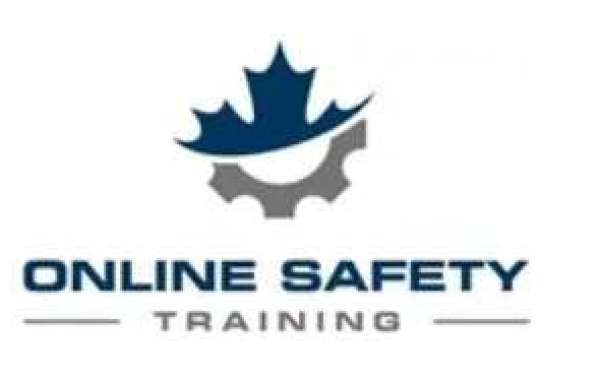In an age where fire hazards continue to pose a significant threat to communities, fire safety law professionals play an indispensable role in safeguarding public well-being. These experts work behind the scenes, ensuring that buildings, businesses, and public spaces comply with strict fire safety regulations. But what exactly do fire safety law jobs entail, and how do they contribute to creating safer environments for everyone?
This blog delves into the importance of fire safety law professionals, explores key responsibilities, and explains how these roles help protect lives, reduce fire risks, and create safer communities.
The Vital Role of Fire Safety Laws
Fire safety laws are designed to minimize fire risks by setting clear guidelines for fire prevention, building codes, emergency procedures, and safety protocols. These laws are not just a set of rules; they are a life-saving framework meant to reduce the devastating impact of fires on both people and property.
For example, fire codes mandate that all buildings must have fire-resistant materials, proper escape routes, and fire alarms. They also require periodic inspections and fire drills to ensure that safety measures are in place and effective. Fire safety law professionals ensure that these codes are implemented properly and that businesses, homes, and public facilities comply.
By enforcing these laws, they help prevent incidents before they happen and respond to potential hazards swiftly, which can save lives and reduce damages.
How Fire Safety Law Jobs Directly Impact Community Safety
The influence of fire safety law jobs extends far beyond just the legal and regulatory environment. Professionals in this field help shape the way communities manage fire risks and keep people safe. Here’s how fire safety law professionals contribute to community safety:
1. Preventing Fire Hazards
Fire safety law professionals work proactively to minimize the risk of fires. They assess structures for compliance with fire prevention codes, conduct regular safety audits, and ensure that appropriate measures are in place to reduce hazards. They are often involved in reviewing blueprints for new buildings, making sure that fire-resistant materials are used and that escape routes are clearly marked.
For example, fire safety officers might require that high-rise buildings install sprinklers in hallways and fire alarms in every apartment unit. Their vigilance in ensuring these measures are met can prevent the spread of fire and reduce its impact on surrounding areas.
2. Educating the Public and Businesses
Fire safety law professionals don't just enforce regulations—they also educate the public and business owners about fire prevention. Fire safety education campaigns aim to raise awareness about basic fire safety practices, such as properly storing flammable materials, testing smoke detectors regularly, and understanding fire escape plans.
By providing training for business owners and the general public, fire safety professionals create a culture of awareness and preparedness. These proactive measures, combined with law enforcement, reduce the likelihood of fires occurring in the first place.
3. Ensuring Swift Response to Emergencies
When a fire does occur, fire safety law professionals ensure that the emergency response is effective and efficient. They collaborate with fire departments, law enforcement agencies, and other first responders to ensure that fire safety protocols are followed during emergencies.
These professionals help coordinate evacuation procedures, monitor fire safety compliance during an active fire, and oversee the post-fire investigation to determine the cause of the fire. Their role is essential in minimizing damage and ensuring that the emergency response aligns with established fire safety laws.
4. Advocating for Stronger Fire Safety Regulations
Fire safety law professionals also play a crucial role in shaping public policy. They work alongside legislators and government bodies to create and revise fire safety regulations. By advocating for stronger safety measures, these professionals ensure that fire safety laws evolve to meet changing needs and challenges.
For example, as building materials change, fire safety professionals push for updates to building codes to reflect those changes. They also advocate for new regulations to address emerging fire risks, such as those posed by climate change, increasing urbanization, or new technologies like electric vehicles.
Their efforts help communities adapt to new risks and ensure that fire safety laws remain relevant and effective.
Key Responsibilities of Fire Safety Law Professionals
Fire safety law jobs cover a broad spectrum of responsibilities, from enforcing regulations to advising businesses on compliance. Here are some of the main tasks performed by professionals in the fire safety law sector:
1. Fire Code Enforcement
One of the most critical aspects of fire safety law is enforcing fire codes. Fire safety professionals inspect buildings, workplaces, and public spaces to ensure compliance with fire safety laws. This involves checking whether buildings have appropriate fire exits, fire extinguishers, smoke detectors, and fire-resistant materials.
Inspectors also evaluate the condition of fire protection systems, such as alarms and sprinklers, and assess emergency escape routes. They issue violation notices if any part of the building fails to meet the necessary standards and, in some cases, may even close down establishments until they comply.
2. Legal Consulting
Fire safety law professionals may also serve as legal consultants for businesses and organizations. They provide advice on how to meet legal fire safety standards and navigate complex regulations. Whether it's a new construction project or a retrofitting of an older building, these experts ensure that all legal requirements are met.
Consultants may also assist businesses in understanding liability concerns related to fire safety. By advising on risk assessments and fire prevention strategies, they help companies reduce the risk of costly fines or lawsuits.
3. Risk Assessment and Planning
Fire safety law professionals are involved in assessing potential risks within buildings and large facilities. They conduct thorough audits to determine whether fire hazards exist, evaluate the effectiveness of existing safety measures, and develop plans to mitigate risks. These assessments are especially important in industries like manufacturing, where fire hazards may be more common due to the presence of flammable materials or machinery.
By providing detailed reports and actionable plans, fire safety professionals help organizations address weaknesses in their fire safety procedures and minimize the potential for disasters.
4. Incident Investigation and Analysis
After a fire incident occurs, fire safety law professionals are often called to investigate the cause and impact of the fire. They collaborate with fire departments to gather evidence, interview witnesses, and analyze the sequence of events that led to the fire. By identifying the cause, whether it’s faulty wiring, improper storage of flammable materials, or human error, they help prevent similar incidents in the future.
These investigations also serve as a way to refine fire safety laws and regulations, ensuring that they address emerging risks and evolving standards.
Fire Safety Law Jobs: Career Opportunities and Growth
As fire safety laws become more sophisticated and the importance of fire prevention grows, the demand for professionals in this field continues to rise. There are various career paths for individuals interested in pursuing a career in fire safety law. These roles span across government agencies, private consulting firms, and large corporations.
1. Fire Safety Inspectors
Fire safety inspectors evaluate buildings and properties for compliance with fire safety laws. They conduct regular inspections, issue citations for violations, and provide guidance to property owners on how to improve safety measures. This role requires attention to detail, knowledge of fire codes, and strong communication skills.
2. Legal Advisors and Consultants
Legal advisors in fire safety law offer consulting services to businesses and government agencies. They interpret fire codes, draft legal documents, and ensure that organizations comply with local, state, and national fire safety regulations. This career path typically requires a legal background, along with specialized training in fire safety law.
3. Risk Managers
Risk managers specializing in fire safety work within industries that are particularly vulnerable to fire risks, such as manufacturing, construction, and hospitality. They assess fire risks, develop safety plans, and advise on insurance coverage to mitigate financial losses in the event of a fire.
4. Fire Safety Educators
Fire safety educators design and implement training programs for businesses and the public. They raise awareness of fire prevention strategies and teach people how to respond in case of an emergency. Educators often work with schools, local governments, and community organizations to promote fire safety education.
Conclusion: The Critical Role of Fire Safety Law Jobs
Fire safety law professionals play a crucial role in preventing fires, saving lives, and fostering safer communities. Through diligent enforcement of fire codes, public education, and collaboration with first responders, these experts help minimize the risks of fire disasters. They ensure that fire safety regulations evolve with the times, advocating for stronger policies to meet new challenges.
For those looking to contribute to public safety, fire safety law jobs offer not only the opportunity for a fulfilling career but also the chance to make a lasting impact on the well-being of entire communities.










